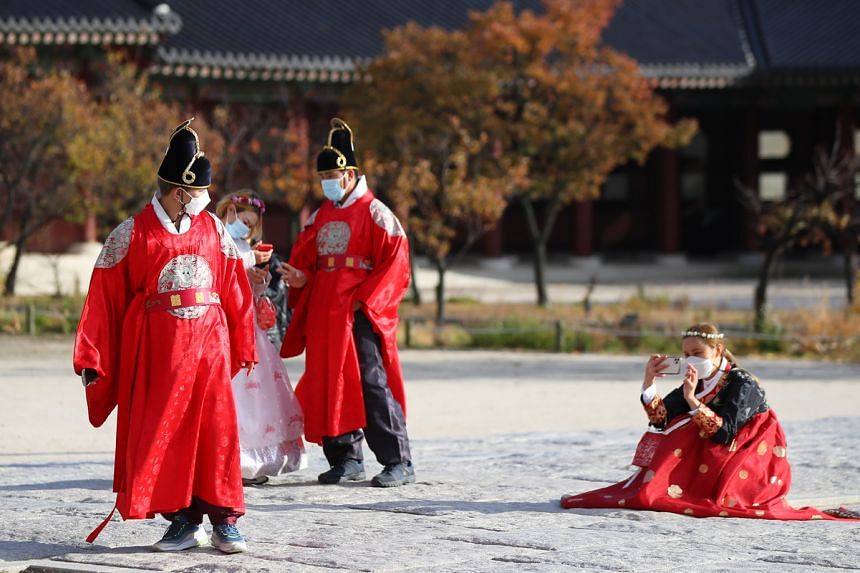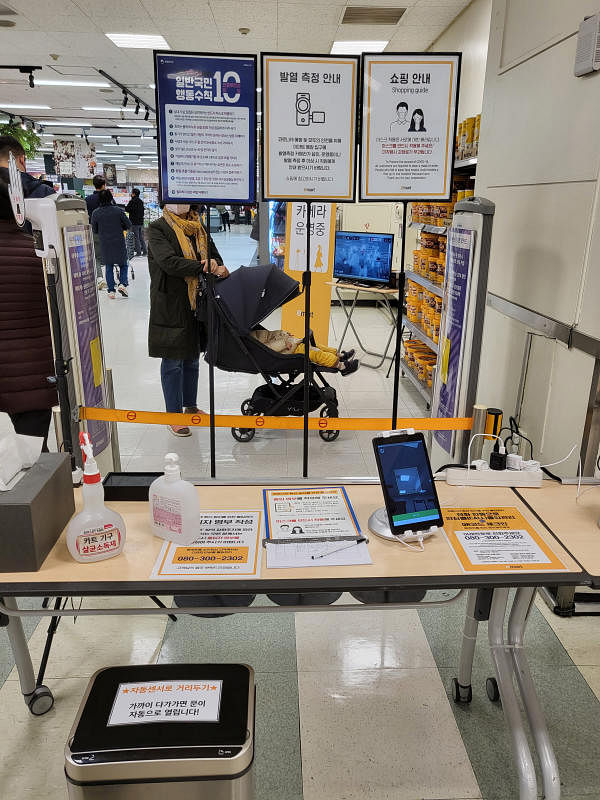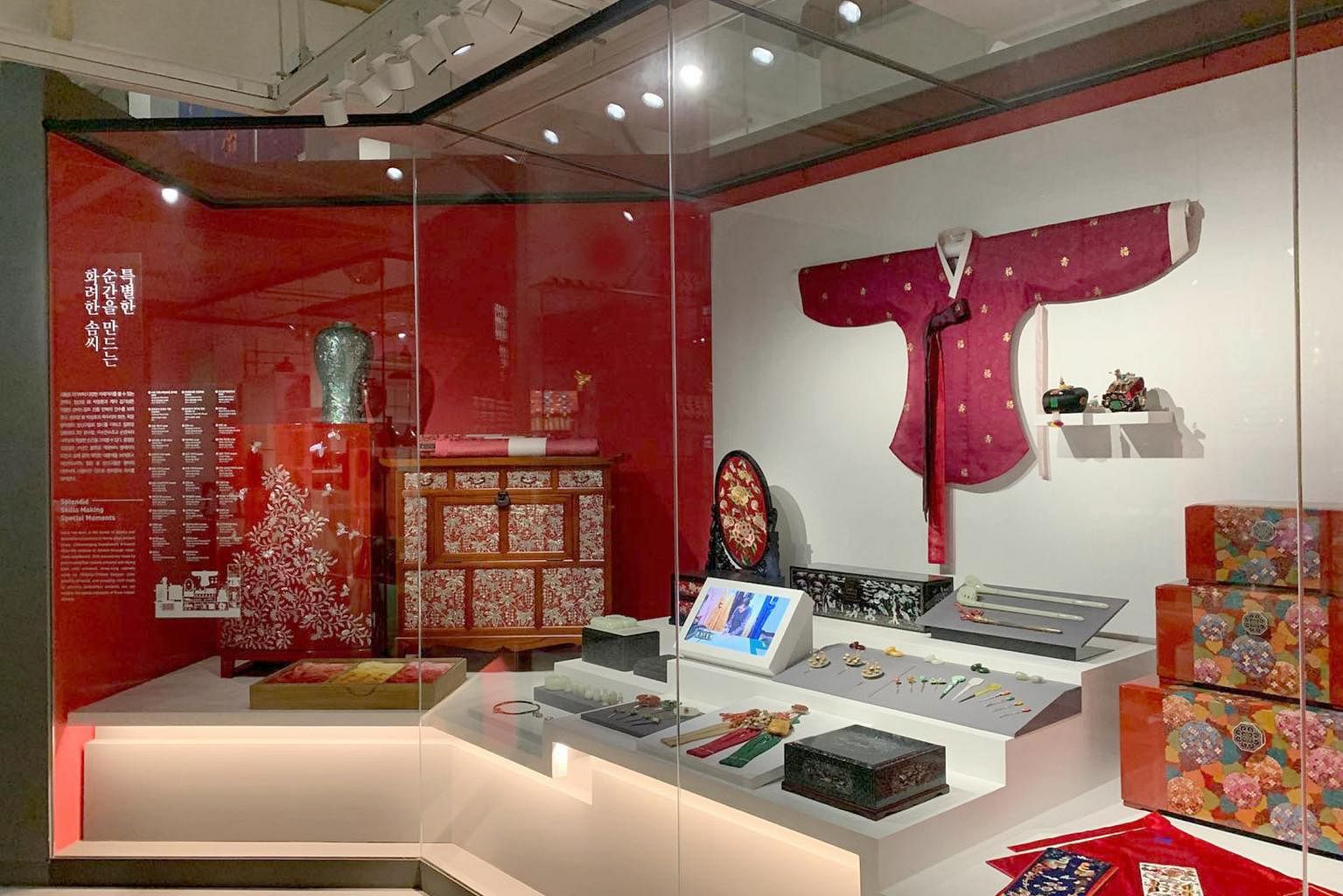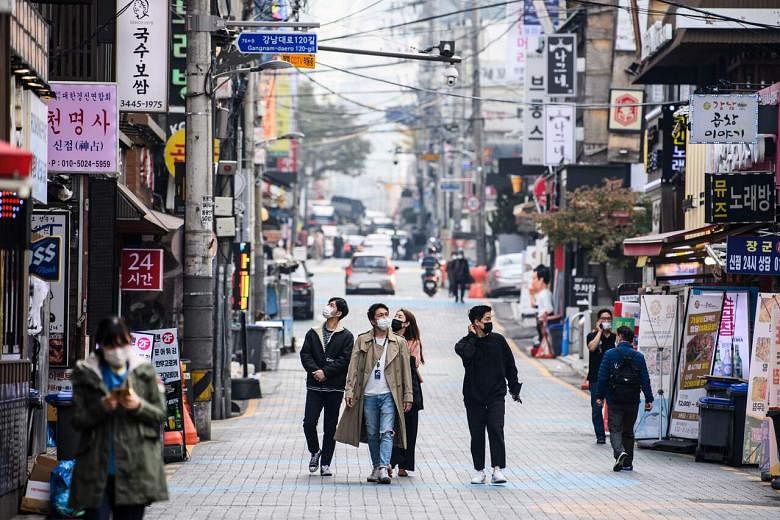Masks? Checked. Hand sanitizer? Checked. Vaccination certificate? Checked.
Singaporeans yearning to travel to South Korea on the Vaccinated Travel Lane (VTL) can do so from Nov 15 when the bilateral agreement goes into effect.
Under the arrangement, those fully vaccinated can travel to either country without having to quarantine and will enjoy the same privileges granted to fully vaccinated citizens.
Travellers must be prepared to take at least four Covid-19 polymerase chain reaction (PCR) tests before flying out, in Korea, and when they land back in Singapore. The tests must be undertaken at a clinic or a registered provider and not self administered.
Here's a Q&A for those planning to visit the land of kimchi and K-pop, including advice from the South Korean embassy in Singapore, the Seoul Metropolitan government, as well as Singaporeans residing in South Korea.
1. Who is eligible to fly under the VTL to South Korea?
To qualify for VTL, you must be fully vaccinated against Covid-19 with any vaccine in the World Health Organisation emergency-use list. You must have stayed in Singapore for the past 14 days, and your vaccination certificate (in English) must be issued by either Singapore or South Korea.
Unvaccinated children below the age of six (as at the date of arrival) will also be exempted from quarantine if they are accompanied by an eligible adult traveller.
Unvaccinated travellers can also board VTL flights but will be subject to 10 days quarantine upon entry. However, those who have recovered from Covid-19, even if fully vaccinated, are not eligible for the VTL.
2. What must you do before flying?
Within 72 hours of departure, you must take a Covid-19 polymerase chain reaction (PCR) test and get a physical copy of a negative result.
You must also apply for visa-free entry via the Korea Electronic Travel Authorisation (K-ETA) website, at least 24 hours before your flight. It will cost 10,000 won (S$11.50) per person.
Travellers will also need to buy travel insurance with a minimum coverage of 30 million won for Covid-19 related medical expenses, and carry a hard copy of the insurance policy. You must also prepare an electronic vaccination certificate with a QR code. You can apply for it via Notarise.gov.sg, and print a hard copy as well.
You must also book a PCR test to be done when you land at Incheon Airport. Log on to Safe2gopass.com and carry a copy of the confirmed booking. The test will cost 174,000 won on weekdays and 180,000 won on weekends. You should also activate auto-roaming for your cellphone so you can make calls whenever necessary.

3. What should you expect when you check in at Changi Airport?
You will receive your air ticket as well as a VTL pass that comes with a lanyard which you are required to wear upon landing at Incheon Airport so immigration officials can recognise you immediately. You should also make sure you have all the paper documents indicated in question 2.
4. What should you expect when you land at Incheon Airport?
Upon landing, you will proceed to the quarantine section where you will submit your vaccine certificate, negative PCR test result and a health condition report (to be issued by your airline and filled on board the flight).
You will then move to the Immigration section to submit a travel record declaration form (also done during flight), get your passport stamped, and get your vaccination certificate QR code scanned for verification. After that, you will go to the Covid-19 test centre where you will submit your VTL pass with lanyard, take a PCR test, and install a quarantine app for self-monitoring of Covid-19 symptoms.
You will also receive a notice with instructions for business owners on how to check your vaccination status. Businesses use a COOV app to verify a traveller's vaccination credentials.
Finally, taking a taxi or personal transportation to your accommodation is recommended, although using public transportation is allowed. Stay at your accommodation until you receive a negative test result the next day, either via cellphone text message or e-mail.
After that, you will be able to roam freely. If you are staying more than eight days, you will be required to go for PCR testing again on the sixth or seventh day.
5. What happens if you test positive?
You will be moved to a designated medical facility for treatment and undergo epidemiological investigations. You will also be quarantined until you recover.
6. What are the main Covid-19 related rules to follow and are there any restrictions on business operations?
Mask wearing is mandatory wherever you go. If caught without a mask, you can be fined up to 100,000 won.
Restrictions on operating for all facilities have been lifted since Nov 1, except for a 12am curfew for night entertainment venues. However, high-risk facilities including clubs, karaoke rooms, gyms and saunas are only for fully-vaccinated people and you will need to show the notice you received at Incheon Airport to the staff. They will use the COOV app to scan your vaccination certificate QR code.
All facilities including malls, marts, restaurants, cafes and shops will need to record visitor entries for contact tracing purposes. You can do so by writing down your phone number on a visitor record sheet.
In the capital area (Seoul, the surrounding Gyeonggi province and Incheon), including in restaurants and cafes, people are allowed to gather in groups of up to 10. Vaccinated people are allowed to eat and drink in movie theatres too.

A Transport Ministry official told ST that there can be teething problems as not all businesses are aware of how to check the vaccination status of VTL travellers. "Restaurants in Myeongdong and Gangnam are aware of the VTL but small local restaurants may not be familiar with this," the official said. "There could be some trouble initially but it will all work out eventually."
7. What do Singaporeans living in Seoul advise?
Ms Chua Pei Chi, president of the Singapore Club Seoul, urged travellers to never remove their face masks in public areas and to refrain from talking loudly, especially on public transport. "Also comply with South Korea's gathering guidelines and do not be surprised if you get turned away by some restaurants, because they may not want to entertain big groups of foreigners," Ms Chua told ST.
"Don't expect a pre-Covid Korea, because everything has changed. Myeongdong is filled with empty shops and most of the street food stalls are not operating. But there are lots of Squid Game merchandise and sugar candies on sale."
Mr Justin Yong, who chairs the Singapore Chamber of Commerce in Korea, said travellers should learn some basic Korean to make communication with locals easier, and to dress warmly because temperatures are dropping as winter approaches.
8. What are some new travel attractions in Seoul city?
Travellers can "experience the beauty of Korean crafts such as embroidery, ceramics and traditional accessories" at the Seoul Museum of Craft Art, opened in July, according to a spokesman from Seoul Metropolitan Government.

Fans of the hit drama Squid Game can visit filming locations in north-eastern Ssangmun-dong, such as a convenience store where two main characters had a conversation, while fans of the Joseon-era zombie series Kingdom can visit royal palaces such as Changdeokgung to experience how it feels like to live in the last imperial dynasty (1392-1910) of South Korea.
9. What should you do if you develop Covid-19 related symptoms during your stay?
If you are in Seoul, you can get tested for free at any of the screening clinics in this list. You can also call the 24-hour Korea Travel Helpline at 1330 for assistance in English. You can also purchase an antigen rapid test kit from convenience stores and do a self-swab test.
10. What should you do before leaving South Korea?
Within 48 hours of your departure, you must take a PCR test at a medical institution recognised by Singapore's Ministry of Health and get a physical copy of a negative result. The list includes 179 hospitals, such as Samsung Medical Centre, Seoul National University Hospital and Soonchunhyang University Hospital, which are all located in Seoul. For details, log on to this page on the MOH website.


